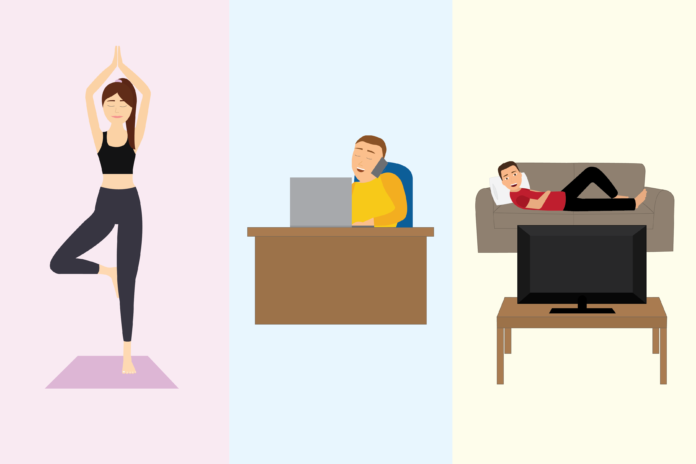What social distancing is, how it works and what readers can do to effectively practice this method
On March 16, 2020, President Donald Trump called for a 15-day shelter-in-place order to mitigate the spread of COVID-19. Across the nation, U.S. government officials have ordered residents to stay home and practice social distancing in an attempt to contain the rate of transmission, effectively halting university operations across the nation — including at UC Davis.
Dr. Jonathan Eisen, a UC Davis professor with a background in evolution and ecology, medical microbiology and immunology and genomics, explained how social distancing can reduce transmission rates and prevent hospitals from being overwhelmed by infected patients.
“We desperately need to slow down the spread [of the virus] to not overwhelm the healthcare system,” Eisen said. “[This will] give time for more ventilators and protective supplies to be made or obtained, better treatments to be developed and better prevention methods to be developed like vaccines.”
At the time of publication, the amount of cases in the U.S. alone has surpassed 100,000. To help flatten the curve, Eisen urges people to practice social distancing, which entails staying away from others and maintaining a distance of at least six feet. Eisen also encourages people to constantly wash their hands, cover their coughs and, most importantly, convince their leaders to implement policies that make social distancing more common.
Eisen shared what he and his family have been doing to keep busy.
“I am trying to spend a bit of time in nature everyday,” Eisen said. “I have been going on walks and taking pictures and posting them to help give what I call ‘NatureTherapy’ to myself and others. I really recommend everyone try to do this if they can.”
Third-year human development major Lillian Cheung detailed how social distancing is especially important to help protect people whose immune systems might not be as strong as hers is due to underlying illnesses.
“If I were to get sick, I might just stay home for a few days and get better and carry on with my life,” Cheung said. “For others, this can be a life or death situation. I think it’d be incredibly selfish to not look out for my neighbors, friends or peers just because I have a greater chance of getting better.”
Universities and schools across the nation have been shut down and opted for online learning methods for the foreseeable future. As a result, many students struggle with adapting to daily social isolation. For Cheung, playing Club Penguin, watching movies on streaming services and cooking with her family has kept her mind at ease during the quarantine.
“I think a tip I would recommend is to just do what feels natural to you and to not feel any pressure to do everything and anything at this time,” Cheung said. “This pandemic is unknown territory. If you’re anxious, talk to someone about it and take it day by day. Everyone in society is definitely struggling with being indoors all day and having their daily lives interrupted, so take this time to care for yourself and do what makes you feel best.”
For those interested in taking classes in addition to their UC Davis workload, eight of the Ivy League schools are offering free online classes. Additionally, museums across the world are offering free virtual tours that individuals can experience from the comfort of their own homes, and the Georgia Aquarium has live feeds of various exhibits. For those struggling with social isolation, an alternative route may include inviting friends to play online board games such as Pictionary, Codenames, Settlers of Catan and Cards Against Humanity or to talk on various video hangout programs available.
A few weeks ago, Cheung was accepted into a UCLA summer internship program that partnered with the Centers for Disease Control and Prevention. Like Cheung, many students have faced the disappointing news of internships and other programs being canceled.
“I’m definitely […] still mourning the loss of such an incredible experience I could’ve had this summer, and the cancellation of my internship made me realize how much unknown is in this pandemic,” Cheung said. “I’ve been looking into shelters, food banks and nonprofits I can volunteer at this summer, and I think that’s what’s been helping me, because there are so many other ways I can help my community.”
In addition to practicing self-care by spending quality time with family and catching up on movies, third-year economics and political science double major Natalie Ken recommends activities that don’t involve staring at screens for an extended period of time.
“I’ve been using YouTube to get ideas for workout routines to stay active at home and occasionally walking my dog outside for some fresh air,” Ken said. “I’ve also been learning how to embroider, which has been super fun and also time consuming, so it’s been a good way to keep busy. Also, keeping in touch with friends by talking to them on FaceTime and Zoom has been another way I keep busy.”
Ken added that everyone is “struggling to adjust during this period of uncertainty.”
“For a lot of us, that means facing job insecurity and missing out on milestones,” Ken said. “But it’s important to keep in mind that we need to do our part to help ‘flatten the curve’ and limit the spread of the virus.”
Written by: Sneha Ramachandran — features@theaggie.org




